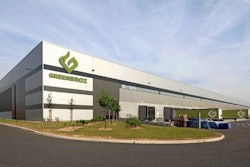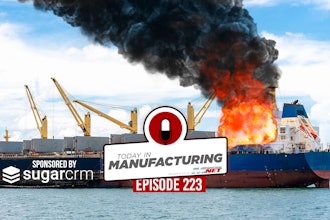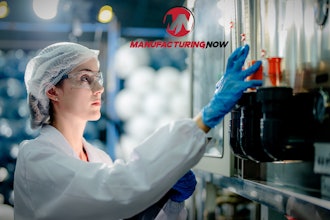Editor's Note: Download the audio version below and click here to subscribe to our newsletter.
In this exclusive interview, Cullen Raichart, CEO and founder of GreenBroz, discusses how he designs and manufactures equipment to help usher cannabis companies into a larger automated landscape.
Raichart started in the industry as a grower, but he quickly realized that he had “brown thumbs.” However, he was a design engineer by trade and found new opportunities to make machinery for friends and fellow growers. He built the first Alchemist Trimmer in his garage, and it was the birth of an “industry-born” company that designs and develops automation equipment specifically for cannabis operations.
Many cultivators brought in equipment from other industries and tried to shoehorn it into their operations, but it often led to damaged products. The crossover with the agricultural industry is undeniable, but companies have been lazy about using equipment that doesn't work with cannabis. Raichart is often called in to replace ill-fitting equipment. He says it leads many cannabis companies to have $500,000 worth of equipment sitting in the corner collecting dust.
When it comes to automation, Raichart says he wants to build a "Twinkie machine" for the cannabis industry — a fully automated system in which ingredients go in one end and a packaged final product comes out the other. A Twinkie machine might cost $25 million, but when Hostess sells nearly $1 billion in pre-packaged treats per year, a large investment starts to make sense.
Cannabis doesn't have a Twinkie machine yet. It’s more of a combination of disparate systems. Raichart says that he still runs into a lot of sticker shock, but companies need to understand what they will gain — as long as it is designed well and functions properly.
Issues persist with banking and tax restrictions, which causes financing problems. Many companies still can't find quality financing within the industry, and don’t have access to traditional banking support that manufacturers in other industries would receive.
Another part of the problem is that companies are still trying to figure out their business strategies. They are in the market for equipment before they’ve established branding, or know if they are making pre-rolls, extracts, flower, or all three. Once companies gain a more mature understanding of their business, they’ll understand how a single system, like a Twinkie machine, will benefit them.
When it comes to GreenBroz’s equipment, the trimmer is still king, because it’s easy to see the value of a trimmer. The same is true for a bud sorter. What’s difficult is educating people on how to solve labor problems with equipment. For example, while Raichart can easily sell a trimmer, it’s difficult to describe the value of a rise conveyor to feed multiple trimmers when companies think they can just put a laborer on it. The value is in freeing up the worker to do more high-value jobs, but most of the industry just doesn’t understand that yet.
Raichart has been in the largest facilities, with 1 million square feet processing up to 1,800 pounds of product per day. He’s also been in the smaller, more craft-oriented companies with two grow rooms. Both have the same operational problems, just at different volumes. They struggle with process management and product flow to improve operational efficiency. They also have problems with cleaning, particularly in states that require equipment to be cleaned between strains. The lack of regulation is why Raichart designs equipment to meet FDA regulations, including the use of 316 stainless steel on all contact points.
As a design engineer, it’s sometimes difficult for Raichart to transition from a developer constantly striving for perfection to a business owner marketing and selling products. While he works on future equipment iterations, he is constantly making minimal improvements that maximize value. He never stops thinking about how to improve his equipment, but he has to focus on when to address the issue. He realizes that you can't fix everything.
Labeled an essential business, GreenBroz has remained open throughout the pandemic. While it has changed things up operationally, sales never dropped and Raichart has stayed busy, including hiring new talent.
Cannabis is a young, interesting and vibrant industry, and it has helped Raichart recruit engineering and manufacturing talent who want to be involved with the industry, but suffer a similar condition: brown thumbs.






















